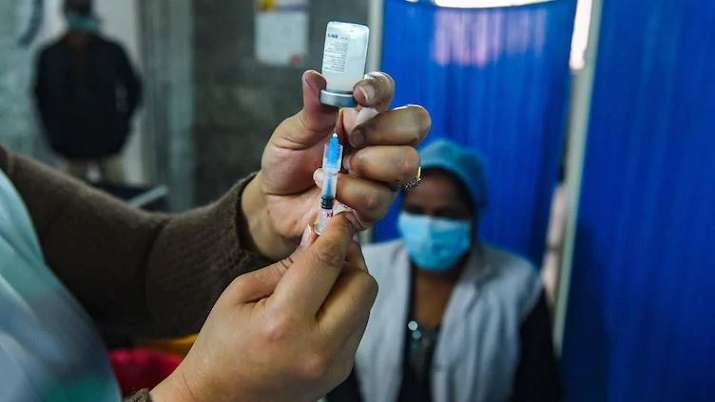
New Delhi, Feb 27: Private hospitals can charge up to Rs 250 per dose of Covid-19 vaccine, official sources said on Saturday as India prepares to vaccinate people aged above 60 years and those over 45 with comorbidities from March 1.
The Covid-19 vaccine will be given free of cost at government hospitals, while people will need to pay for it at private facilities.
"Rs 250 will be the ceiling -- Rs 150 cost of vaccine plus Rs 100 service charge. This arrangement will remain effective till further orders," a source said.
According to sources, states and union territories have been informed about it.
The Union Health Ministry on Friday had said beneficiaries would be able to self-register in advance by downloading the Co-WIN 2.0 portal and through other IT applications such as Aarogya Setu, which will show the government and private hospitals serving as Covid-19 vaccination centres (CVCs) with date and time of the available schedules.
The beneficiary would be able to choose the CVC of his/her choice and book an appointment for vaccination, the ministry said.
There will be facility of on-site registration so that eligible beneficiaries can walk into identified vaccination centres, get themselves registered and inoculated.
"Eligible beneficiaries would be able to register themselves on the Co-WIN platform from March 1 itself," R S Sharma, Chairman of Empowered Group on Covid-19 Vaccine Administration had said.
The nationwide Covid-19 vaccination drive was launched on January 16. This is now to be exponentially expanded to the age-groups -- all citizens above 60 years and those within the age bracket of 45 to 59 years with specified co-morbidities -- from March 1.
During a meeting held on Friday, representatives of states and UTs were explained the basic features of version 2.0 of the digital platform Co-WIN, which is a population-scale software with capacity of processing several thousands of entries.
It was pointed out that all CVCs must be health facilities which are government health facilities such as sub health centres (SHCs), primary health centres (PHCs), community health centres (CHCs), Ayushman Bharat Health and Wellness Centres, Sub-Division Hospitals, District Hospitals and Medical College Hospitals or private hospitals empanelled under the Central Government Health Scheme (CGHS), Ayushman Bharat- Pradhan Mantri Jan Aarogya Yojana (AB-PM JAY) and similar State Health Insurance Schemes.
States and UTs were asked to ensure that the private health facilities have adequate space for the vaccination process, as detailed in the comprehensive SOPs issued by the ministry, basic cold chain equipments, their own team of vaccinators and staff, and adequate facility for management of any adverse event following immunisation (AEFI) cases for using them as CVCs.
All beneficiaries, regardless of the mode of access will have to carry any one of the following photo ID documents -- Aadhaar Card, Electoral Photo Identity Card (EPIC), Photo ID card specified at the time of registration in case of online registration (if not Aadhaar or EPIC), certificate of co-morbidity for citizens in age group of 45 years to 59 years (signed by a registered medical practitioner), and employment certificate/Official Identity Card for healthcare workers (HCWs) and frontline workers (FLWs).
States and UTs on Friday explained the simplified process of registration, which shall be through three routes -- advance self-registration, on-site registration and facilitated cohort registration.
Under the first route, beneficiaries will be able to self register in advance by downloading the Co-WIN 2.0 portal and through other IT applications such as Aarogya Setu.
"This will show the government and private hospitals serving as CVCs with date and time of the available schedules. The beneficiary would be able to choose the CVC of his/her choice and book an appointment for vaccination.
"The facility of on-site registration allows those who cannot self register in advance to walk into the identified CVCs and get themselves registered on-site and then vaccinated," the ministry said.
Under the facilitated cohort registration mechanism, the state and UT government will take proactive lead, the ministry said in the statement.
Specific date(s) for COVID-19 vaccination will be decided where target groups of potential beneficiates will be vaccinated. State and health authorities will ensure that that the target groups are actively mobilised and brought to the vaccination centres. ASHAs, ANMs, Panchayati Raj representatives and Women's Self Help Groups (SHGs) will be utilised for mobilising the target groups.
Vaccination will be free of charge at the government vaccination centres. The beneficiary will have to show a photo ID document for proof of age (preferably Aadhaar card or EPIC card) and certificate of co-morbidity (if required). Those taking the Covid-19 vaccine at any designated/empanelled private health facility will have to pay a pre-fixed charge.







Comments
Add new comment